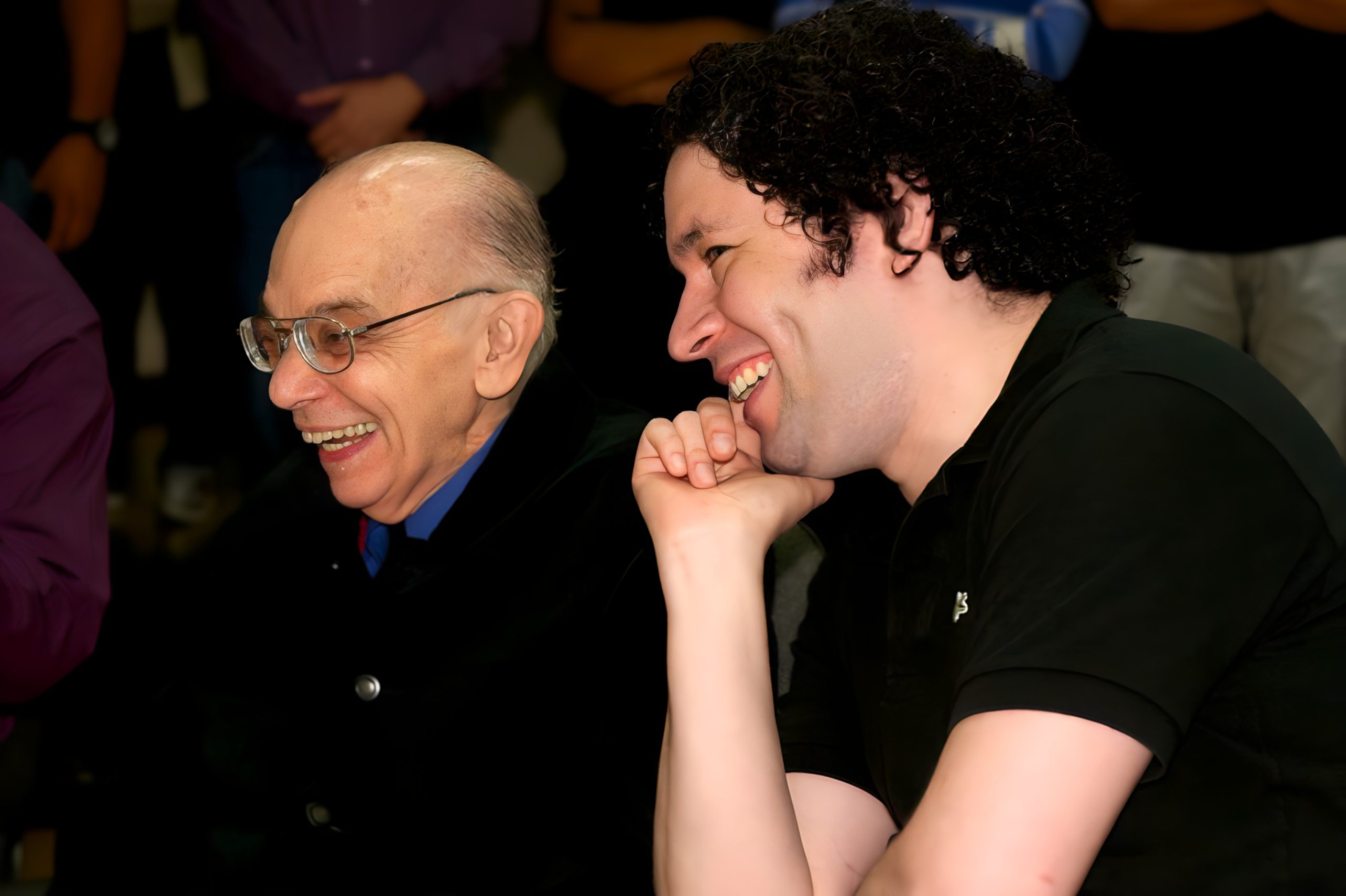Gustavo Dudamel: This is also very, very funny because Maestro Abreu was the one that told me, you know, “Here is the application,” he filled for me the application and he said, “You are going to this competition.” You know? He was very — He never pushed me to do things, you know? He always pushed me to have discipline and to study and to think more, you know, always, even if I knew that something, he made me question to really go deeply, and in the understanding, not only music, you know, in life, in many things that we have every day in our lives. He was like a maestro of life, not only of music, and it was amazing. And I went to Berlin for like three months to be with Simon, rather I saw, I remember I think, “Ozawa, Barenboim, all of these great conductors. It was beautiful to sit in that hall and have this privilege to listen to and to watch and to learn, because it’s true you learn a lot watching others do the rehearsal, mostly rehearsals, than concerts. And I remember my maestro told me, Look, you have to be very smart,” he said. “You will learn many things that are good, but also you, if you are smart enough, you will learn things that you don’t have to do.”

You know, he was kind of, you have to understand that, that balance of things. So, I was kind of watching. So, I learned many things, many wonderful things, very positive. And I went back to Venezuela. And the competition was one week after. And I didn’t want to go to Bamberg, you know, I was three months in between Berlin and Salzburg, and then I went back. I have my friends. I wanted to stay there. And I started said to maestro, “Look, maestro, I have a pain here.” “Don’t worry. I have this medicine for you.” “I have a pain here.” “No, no, no. I have this. You have to go.” So, I went. And I arrived to this beautiful, beautiful, beautiful city, Bamberg is very, very — You walk. I remember the hotel was next to the hall. You walked through the river. It was very small, very, very beautiful. And I said, “Look, let’s do it.” You know, Simon told me, “No, you don’t need a competition. You have only to develop this and all of that.” So, I went to the competition, and I encountered these wonderful conductors which, you know, they were so smart. They were speaking English perfectly, in German, and all of that. I was like, “My God, what the hell I’m doing here?” You know, this is kind of — I don’t belong to this group. I respect all of this, but I’m not, I’m not [unclear]. I passed the first round. I was expecting for me to go back to Venezuela faster, but then I passed the first round, OK. I passed the second round. It was getting like OK, maybe I have to keep going here. So, and at the end, I arrived to the finalists and I won. And this was a moment, you know, where I understood. Because my goal was not to go out and conduct orchestras around the world, my goal was and still is to do music with my friends. You know, that is why I wanted to go back to Caracas and to Barquisimeto and to Venezuela, and to be with, with, with my people. But that was a door that opens, you know, many possibilities. And yes, the Bamberg competition was a very special moment. And look, I got this invitation to Los Angeles. From the moment of the final I remember, it was like that and look where, where we are now, you know, it’s 20 years of a beautiful relation.
